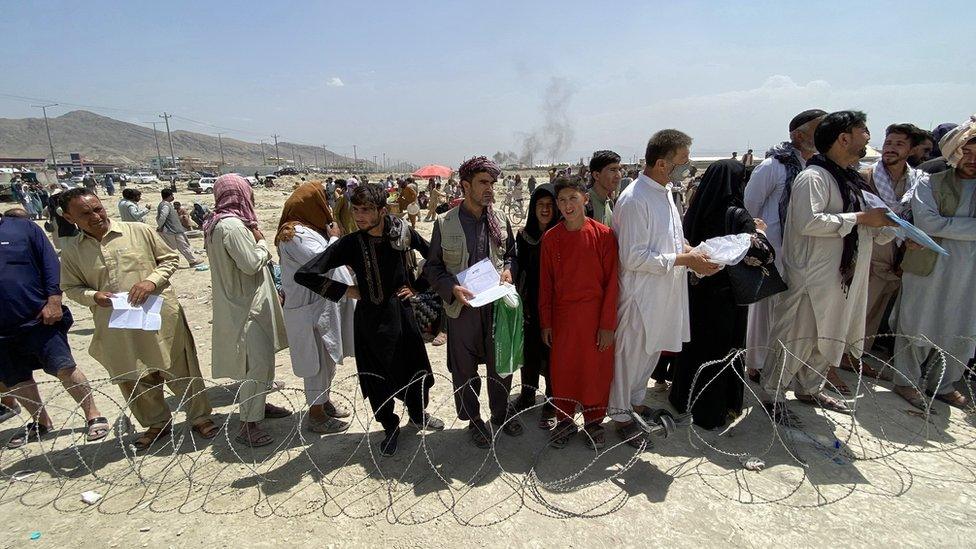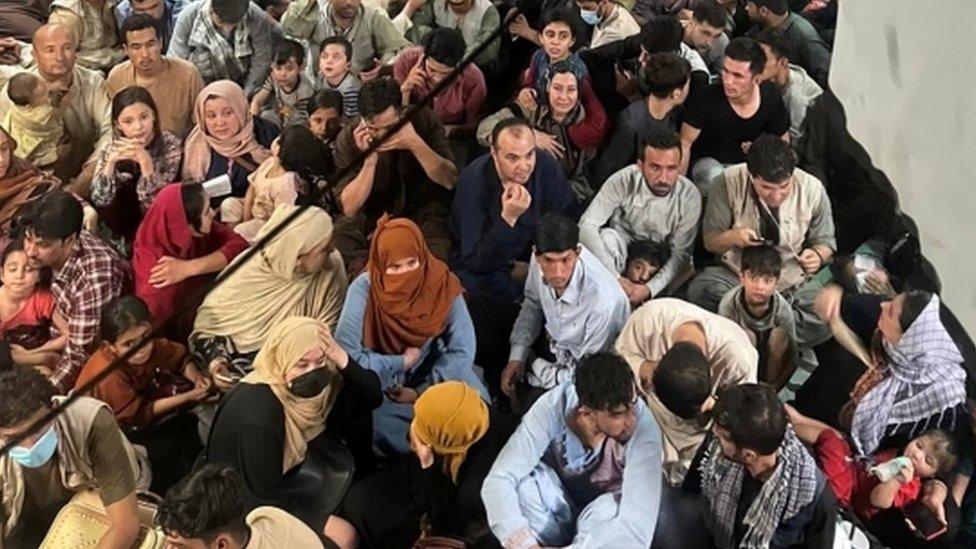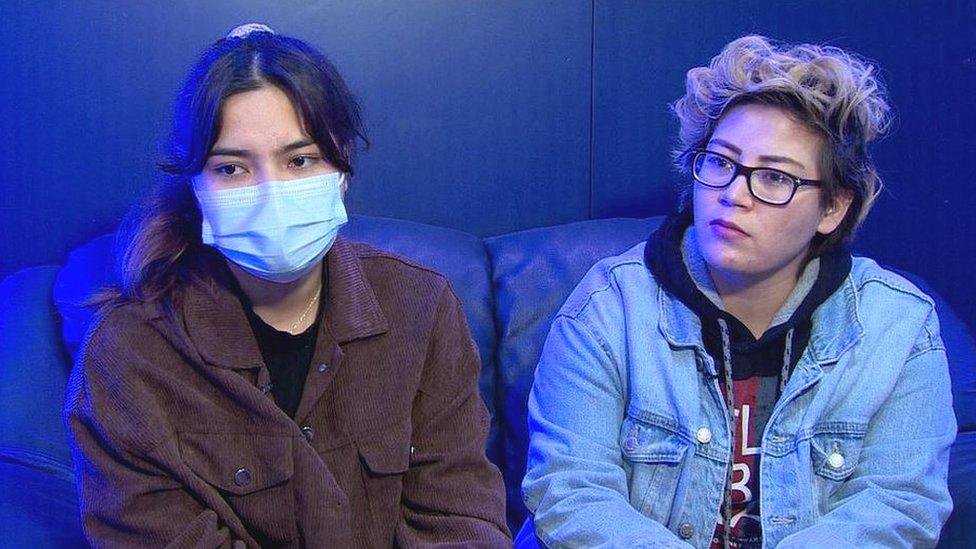Afghan refugee rebuilds life in Northern Ireland
- Published

Afghans wait outside the airport in Kabul, trying to flee the country, in August 2021
An Afghan refugee who fled his country as a 15-year-old has said he "didn't make the decision to leave, you are forced to leave".
Abed, which is not his real name, now lives and works in Northern Ireland.
The 20-year-old's identity has been protected as his family in Afghanistan remain under threat from the Taliban.
The engineer told the BBC's Good Morning Ulster programme that being a refugee meant "you have to sacrifice for your survival - I saved my life".
Abed's journey to Northern Ireland took him through countries including Pakistan, Turkey and Greece.
He travelled alone.
"Where I used to live, it was controlled by Taliban," he told Good Morning Ulster.
"If you have a problem with them, there was no way to live there because they have the power.
"There isn't any laws or anything from stopping them killing you."
He said fleeing Afghanistan was a matter "of life or death".
But Abed tries not to think about the terrifying journey to Northern Ireland.
"Travelling alone at a young age, that is the difficult part," he said.
"It's hard to put into words.
"It was a bad experience and I do have bad memories but I try not to think about it.
"I try to forget most of them and leave them in the past and live my own life."
'I'm happy with my life'
After arriving in Londonderry, Abed was moved to Belfast where he completed his studies and secured an apprenticeship at an engineering firm.
"Then I moved on, got my own job, got my own place and am living my life," he added.
"It was difficult because when I arrived here I had no English and knew nothing about the culture, the people and the system. I didn't know anything.
"I'm still figuring out a lot of things.
"I'm actually happy with my life. I've got friends, I've got my own car, a job - I've got everything that I wanted."
But Abed believes the system should be made easier for refugees to be granted asylum.
"Getting asylum is hard and it takes time," he said.
"Your life depends on it.
"In my opinion, most young people don't have the knowledge to express themselves or explain what happened to them."
Related topics
- Published18 August 2021

- Published20 April 2022
